Table of Contents
We all dream about hitting it big in the world of day trading. Unfortunately the statistics are stacked against us.
It’s a well known fact that more than 95% of traders will end up wiping out their accounts without even realising what has happened.
Despite knowing the threats, there are still hundreds of thousands of us every year venturing onto this path. We are still trying to fight the odds thinking that we have what it takes to make it out alive and our pockets full of money.
But what is it that separates the ones who become profitable from everyone else?
Is it because they’re smarter, better looking, more talented, have fatter wallets or is there something else? …a mysterious X-factor that we don’t know of?
I’ve asked the very question from 27 truly successful traders and here is what they had to say:
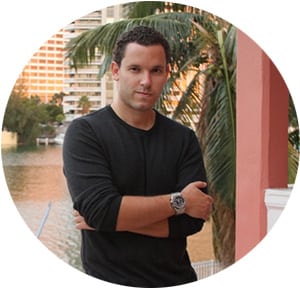
Timothy Sykes
Timothy Sykes is a professional day trader, mainly known for trading penny stocks. He has made millions from trading the stocks that most people stay away from.
You may find Tim over at his website:
https://www.timothysykes.com
or via Twitter @timothysykes
Tim’s answer:
Planning and discipline are key, 95% of traders don’t know how to plan a trade in advance and even if they did make a plan, they don’t stick to it…pros know cutting losses quickly is not an option, taking singles instead of going for home runs is a higher odds strategy, ignore the rules and you lose so it’s your choice.

Tim Grittani
Tim Grittani is a self-made man, having famously turned 1’500$ into over 4’000’000$ trading penny stocks and Nasdaq small caps. He is the most successful student of Timothy Sykes.
Tim writes about his traders over at his blog:
http://tradetheticker.blogspot.com
+ he is really active on Twitter @kroyrunner89
Tim’s answer:
I think the number one factor is being able to learn from losses/mistakes.
Successful traders lose too, and the vast majority I know suffered account blowups early in their career just like everyone else. The main difference is being able to identify their mistakes, and then most importantly, change.
Maybe the problem is trading too many unreliable setups. Maybe it’s failure to cut losses. Perhaps it’s chasing entries due to fear of missing out.
Whatever the case may be, the traders who ultimately wind up being successful are meticulously tracking their trades and able to identify and learn from their failures. They focus on which errors they’re making the most frequently, and that shows them what to change in order to improve.

Brannigan Barrett
Brannigan is a former currency dealer, who turned into a proprietary trader back in 2011. He started off mainly focusing on EU bond products, but later expanded into other markets such as currencies, equity indices and commodities.
You may find out more about Brannigan via Axia Futures website, where he is the Trader Development Strategist
or via Twitter @Trader_Bran
Brannigan’s answer:
I dont think it is a matter of successful versus failure. That is too primitive. It should rather be survivors. However the one thing ‘survivors’ do well is find a way forward.
Many traders yearn for certainty and exactness when markets are governed by only probabilities.
Those who can survive long enough to discover something that works for them are the ones that make it long enough to tell the tale.
P.S. Success can never be achieved in trading because once you proclaim this you will cease to grow

Turney Duff
Having made millions of dollars as a former hedge fund trader on Wall Street, Turney knows a thing or two about trading. However he has quit his job on Wall Street and turned into a best-selling author, most famous for his book “The Buy Side”.
You may find Turney via his website http://turneyduff.com
and on Twitter @turneyduff
Turney’s answer:
Most traders don’t do what they say. A lot of guys and girls say they’ll do x when y happens, but then when y happens it’s too scary to pull the trigger.
Now I’m all for calling a quick audible when necessary, but if your thesis hasn’t changed you’ve got to force yourself to buy or sell the stock when emotions are high.
One of the things I used to do is talk to the PMs and analysts on lazy Friday afternoons–when they weren’t staring at the screens. They’d give me levels or scenarios of what they’d do if they ever got the chance. And then I’d run back to my desk and write it down.
So when the time came I could remind them of how confident they were and force them to do the trade.

Yves Hilpisch
Dr. Yves Hilpisch is a text-book example of a quant. Not exactly a day trader in the normal sense of the word, but a significant player in the financial markets.
He is the founder of The Python Quants. Yves has published books on the topic of quantitative finance and is a lecturer at the CQF program.
You may find him over at tpq.io or via Twitter @dyjh
Yves’ answer:
Success is always a combination of many things, but for General Retail Traders:
To have a clear plan, stick to it and to keep emotions in check.for Retail Algo Traders:
To go the extra mile and set up a professional infrastructure for algo trading.

Eric Hunsader
Eric S. Hunsader is an experienced developer of real-time software for trading.
Eric is a leading critic of High Frequency Trading and has been awarded by the SEC for uncovering wrongdoings in the NYSE.
You may find Eric via his company website nanex.net and on Twitter @nanexllc
Eric’s answer:
Successful traders have a trading plan worked out and they stick to it.

Dan Shapiro
Dan Shapiro is a former prop trader, having moved onto trading on his own with 19 years of trading experience under his belt.
Dan is an intraday trader, focusing mainly on stocks that are volatile than the market as a whole.
Dan teaches his methods over at accessatrader.com and is active on twitter @DanShep55
Dan’s answer:
In my experience most of the guys that I know who been doing this for a long time including myself tend to stick to the same group of names.
Big problem for new traders is their first instinct is to look at the pre market list to attempt to trade stocks that already put in 90% of their move only in attempt to make scraps. Leaving them in a subconscious scenario of all risk no reward. This is incredibly random because the defined risk is impossible to gage.
I found out years ago that if you concentrate on a go to list of names , you get familiar with their tendencies and average true range for the day. My speciality is trading high beta names using the #ps60 theory. It’s a theory that stocks trade from supply to supply and demand to demand confirming through a 60min channel.
TslA amzn baba nflx nvda googl etc . There is a much higher probability in success because most of retail doesn’t trade them hence making the moves more predictable after a pivot is confirmed.
As a trader we want boring and methodical moves. Most traders find the pre market list exciting. Exciting means you are not in control. If you are not in control that means your emotional levels are rising. That is a huge red flag.
New traders ask yourself a question. If 90% of traders fail , why would you want to be in the same names as them?
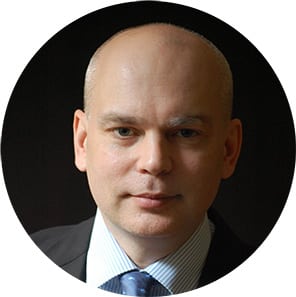
Haim Bodek
Haim is the algo consultant, HFT trader, founder of Trading Machines LLC, which is a HFT company focusing on options. He was the global head of UBS electronic volatility trading before launching his own company.
Haim is most known for shedding light upon the dark world of HFT companies making money on retail traders’ expense. (Source)
You can find more about him via haimbodek.com or via Twitter @HaimBodek
Haim’s answer:
A successful trader has a repeatable, systematic edge.
Hard to find and must stick to it when identified.

Michele Koenig
Michele started trading full time since 2001. She is a day and swing trader mainly focused on trading technical set-ups. She is also one of the founders of Traders4ACause Charity program.
Michele operates a trading chat room over at tradeonthefly.com
Here’s what Michele had to say:
If I had to sum it up in one word it’s GRIT.

Kevin Davey
Kevin Davey is a trader focusing on algorithmic strategies with over 25 years of market experience. He became known after finishing in the top 3 in three consecutive years at world premier real money futures trading contest.
Kevin has published books on trading and provides trading education via his website kjtradingsystems.com.
Kevin is also active on Twitter @kjtrading
Kevin’s answer:
Successful trading is hard, and full of pitfalls and setbacks.
The people who are successful at it are persistent. They realize that practice, experience and failure are all part of the process.
Successful traders don’t give up at the first sign of adversity. They learn from their mistakes, and never give up.
Eventually, these persistent traders put themselves in a great position to be successful.

Michael Melissinos
Michael has worked in various positions in companies like Bear Stearns, J.P. Morgan and SMB Capital. After trading under SMB, he founded his own asset management company.
You can learn more about Michael through his website tradingtechnologies.com or via twitter @mmelissinos
Michael’s advice on what separates the winners from the rest of us:
One word: discipline

Ivaylo Ivanhoff
Ivaylo is an experienced trader and a recognised author in the trading realm. His work has been featured on WSJ, Bloomberg, Yahoo Finance, Reuters, CNN and all other major industry news outlets.
He is a founder of Marketwisdom.com, where he provides his take on the markets. Ivaylo is also actve on Twitter @ivanhoff2
Ivaylo’s answer to my question:
Experience.
If you survive the steep learning curve and if you are well-capitalized, eventually you learn how to manage risk and opportunity cost properly.
You know when to be aggressive with your position size and equity selection and when to do very little and stay on the sidelines.Not all markets provide the same opportunities.
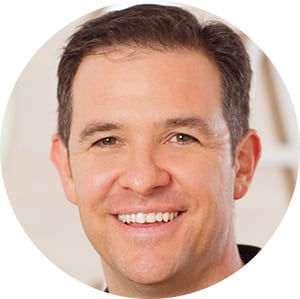
Stuart McPhee
Stuart McPhee is an Australian is an Australian FX trader. After his career as an army officer, Stuart turned into a trader and has been in the industry now for over 20 years.
He is an author, licensed adviser and a speaker at various trading events around the world. You can find more about Stuart through his website at Stuartmcphee.com or check what he has to say over at Twitter: @stuartmcphee
Stuart’s answer:
Here is an analogy that I often use … I play a lot of golf and really enjoy it. However I am not a professional golfer, and I don’t make one cent from playing golf. In fact it costs me money.
I bought a new set of clubs a few years ago and they were not cheap. My membership fees are reasonably expensive, therefore it costs me money.
While I don’t make any money playing and I am not a professional golfer, I absolutely love playing golf. But it is a hobby.
From what I see from too many traders, they treat trading as a hobby. They enjoy it, they spend some time doing it, they’re happy to do it, but at the end of the day it costs them money. They don’t take the next step of becoming professional.
Golf for me is a hobby, but trading demands more of time and respect.

John Welsh
John Welsh is a trader that managed to turn 25K$ into profits that have exceeded 4 million dollars. He used to be a software engineer, but after making the leap, has never looked back.
John is really active on Twitter @johnwelshtrades covering the stocks that he is trading and general market commentary. He also has a very minimalistic blog where he provides insight to his trading methods at johnwelshtrades.net
Mr Welsh’s answer:
It is very, very simple: 95% of traders add to losing trades instead of selling them.
I never, ever add to a losing trade unless my initial position was a starter position.

Jason Leavitt
Jason is a stocks trader based in the Denver area. Jason’s background is in engineering and bar-tending. In addition to trading, he runs a website called leavittbrothers.com.
Despite sticking to the sidelines, his articles have been published on a number of major trading related mediums.
You may also find him via Twitter @JasonLeavitt
Jason’s answer:
The #1 action pro traders take to separate themselves from the wannabes is they press their winners. They don’t just hold their winners, they press their winners.
Like a great poker player who will strategically “push it” when he knows he has the best hand, great traders also “push it” when in a good situation.
You need an occasional big winner to make it in this industry.

Joel Kruger
Joel Kruger is a seasoned forex specialist with 13 years of currency trading experience. His strategy is based on a mix of technical and fundamental analysis. Prior to trading on his own, Joel used to work in investment banking and as a currency strategist for top-tier research advisories and a leading FX broker.
Joel has a website where he writes about his trading ventures and strategies – https://jkonfx.com/
He is also very active on Twitter @JoelKruger
Joel’s answer:
The Gift is in the Present: I think the real answer to this question comes down to one of the greatest challenges in all our lives, a challenge that extends well beyond trading.
An overwhelming majority of aspiring traders possess the wonderful quality of dreaming big. The trouble is, dreams are disconnected from reality and most of us associate dreams with something we wish would happen, which means there is a part of us that doesn’t believe it actually will happen.
But why is it that an overwhelming majority don’t believe their dreams will come true? I believe it’s because our dreams don’t focus on all the things that build up to that thing we long for.
Our dreams cut out the process and focus exclusively on a glorification of that thing. And so, subconsciously, we don’t believe our dreams are possible because they never focus on the path to getting there.
With that said, there is another question that needs to be asked. When we think of the things we have that have made us the most proud, fulfilled and sure of ourselves in life, they are the things we have spent time working towards that we have been committed to because we love doing them.
They are the things we would be happy to do without even thinking about what may come of them, because we are are already enjoying the rewards they offer in the moment, whether realizing it or not.
This is what truly separates that 5%. These are the people that love trading because of what it does for them day in and day out – in the moment.
They don’t obsess with what may or may not come from what they are doing. They obsess in the present, because they love where they are right now and are living in the moment.
And so, if you really want to trade successfully, perhaps just ask yourself if you love trading, or if you want something else that you think trading might give you?
If it’s the latter, you’re probably standing next to 94 other people.
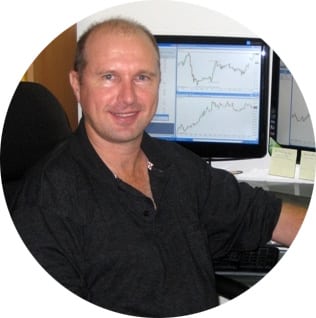
Lance Beggs
Lance is a trader and a trading educator based in Queensland, Australia.
He is a technical discretionary trader mainly focusing on the E-mini NASDAQ futures and Crude Oil Futures markets.
He teaches his methods on his blog yourtradingcoach.com. Lance is also rather active on Twitter @LanceBeggs
Lance’s answer:
Trading is a performance activity. And success in any performance activity depends upon development of skill.
Progress requires a more effective feedback process. An improved daily/weekly/monthly process for reviewing your performance and driving further growth and development.
Identify where you outperform. Understand why. Identify ways to repeat this in the future and, if possible, to further improve upon it.
Identify where you underperform. Understand why. And identify ways to improve.
Aim for incremental growth, driven by a thorough and effective review process.
So if you’re stuck, stop looking for any quick-fix solutions. Instead, consider improving your processes so that they provide better feedback. And then use that feedback to drive growth and development.

Tim Walker
Tim Walker is a trader and an educator. He has extensively studied the methods of W.D. Gann, one of the greatest traders of the 20th century.
Tim applies and teaches Gann’s methods over at his blog timwalker.net.au.
Chat with Traders did an insightful interview with Tim, that you can check out at https://chatwithtraders.com/ep-006-tim-walker/ – well worth 58 minutes of your time.
Tim’s answer:
Successful traders approach their trading scientifically and professionally; unsuccessful traders merely play a game.

Steve Burns
Steve can be called a veteran trader, having started trading in 1995. He started a website back in 2011 to cover his ideas and trading strategies. Since then, the site has become popular among beginner traders receiving over 100´000 visits every month.
You can check out his website at newtraderu.com. And like many other traders, he is highly active on Twitter @sjosephburns
Steve’s answer:
I would say perseverance. If you don’t quit only time separates you from success in trading.
You can always get more money, learn what you need to know, and keep trading through losses or drawdowns but if you quit it is truly over.
Most new traders do not stick with it long enough to really see if they can figure it out.

David Frost
David is another industry veteran with over 20 years of actual trading experience.
He is a specialist in gap trading – a strategy that he talks about and teaches on his blog @ mystrategisforecast.com
David’s answer:
I think the one thing that all successful traders learn which makes them a success over the long term is knowing where they’re wrong on a trade and being able to lose small and fast.
We all know we can’t win every trade, therefore, keeping the losers to a minimum is a huge key to success. Traders who trade on “hopium” are destined to take big losses and fail until they learn how to lose.

Etienne Crete
Etienne Crete is a forex swing trader based in Canada. He provides trading education via his website and a podcast where he interviews other successful traders.
You can find more about Etienne and his strategies from his website: desiretotrade.com or via Twitter @desiretotrade
Etienne’s answer:
Consistency in their actions & periodic reviews.
A lot of traders who aren’t succeeding forget that the only way to get consistent results (although fully consistent doesn’t exist) is to put in consistent actions.
In addition to that, I think most traders have the potential of becoming more successful by analyzing their performance on a periodic basis. That will show them fairly quickly what they’re doing wrong.
Successful traders know that a week/month without review & improvement is a week/month wasted.
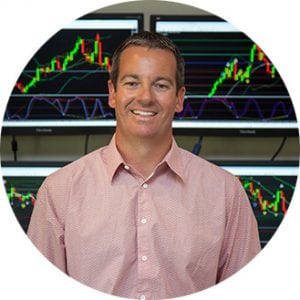
Andrew Mitchem
Andrew is a technical forex trader mainly basing his decisions on the daily charts.
He has been trading currencies since 2003 and has developed a patterns based system for himself to make money off of.
He speaks about his method of trading on his website. Andrew’s twitter is @fxforextrade and he publishes a daily watch list for currencies at forexpeacearmy.com forums.
Andrew’s answer:
If I say it’s a lack of education, people will accuse me of selling my course but a lack of knowledge and education is a very big reason why so many people fail.
However, I’d say it’s not having a reliable trading strategy that is easy to implement in real time.
Far too many traders don’t understand what the charts are showing them. They swap and change systems without actually working on a strategy.

Mercedes Oestermann van Essen
Mercedes is a trader mainly focusing on the spiritual side of trading. She is heavily focused on trading psychology. Mercedes fits Buddhism practices into trading, which is why she has named her blog The Buddhist Trader.
In addition to trading, she provides mentoring focusing on the psychological aspect of trading.
Mercedes’ answer:
The one thing that makes the difference between being successful in the long term is mental nimbleness and awareness. Mental nimbleness covers many things: It is of course about being able to spot changes in trend, and changes in the overall energy in the market.
There is another aspect to mental nimbleness which is often ignored and this is to do with detecting your own internal changes in attitude early on before they can do damage to your trading account.
Meditation, transformational guided meditation is the one thing that will make a difference to long term trading success. I discovered that when one year I was working with a group of Nymex traders who all had issues adjusting to electronic trading.
I created a unique form of meditation for these guys and for all of them, when they followed the meditation strategy their mental state improved noticeably.
Today I swear by meditation is the number one tool to regulate one’s emotional state and stop the impulse behaviours which have killed so many trading accounts.
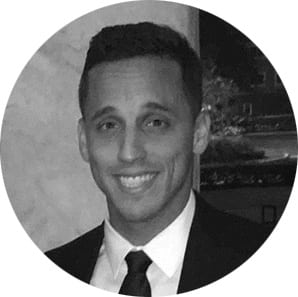
Sean Emory
Sean Emory is the founder and CIO of Avory & Co – an investment company focusing on transformative businesses. The company manages over 1B$ of assets.
He also traders stocks and actively blogs about the market over at The Market Meter. He is active on Twitter @_seandavid
Sean’s answer:
Yeah so that’s a tough question because if there was just one thing people could do, we would all do this one thing.
The truth is there are many things which need to be done. But when you start breaking down the layers of things that can make a successful investor it becomes clear that good investors tend to be patient.
Good investors wait for the time to take larger positions. There’s a lot of pretty good investments out there, but it’s the patience to wait for great investments that create the separation.
I could have gone different directions here. Intuition plays a critical role, having a clear and repeatable process, embedding some form of margin of safety, putting in the work.
The list goes on, and all are vital.

Hunt Holladay
Hunt Holladay is a rather new trader, having just recently turned trading into a full time career. He is mainly focused on trading on the foreign exchange markets. Hunt has attributed a lot of his success to hard work finding a proper trading mentor.
Hunt’s answer:
Becoming successful in trading requires many things to align.
Determination, grit, the ability to delay gratification, education, practice, mindfulness, dedication all rolled in to one.
Then add the secret sauce, hard work, and before you know it you’re a 5 year overnight success.
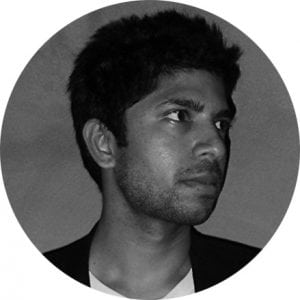
Yvan Byeajee
Yvan has been trading full time since 2006. He attributes his leap to success to merging mindfulness, a proper trading process and an effective business mindset. Yvan is an advocate of mindful trading.
He talks about the benefits of combining mindfulness with trading on his blog at tradingcomposure.com.Yvan also keeps an active Twitter account @yvanbyeajee
His answer:
Consistently profitable traders are above all great in behavior — they have realized the damage that excessive attachment can do to their trading account and their overall well-being, and one way or the other, they’ve learned the art of non-attachment.
Non-attachment is a word that has a lot of weight and includes qualities like patience, determination, self-acceptance, and equanimity. But it can simply mean that you are no longer defined by your thoughts and feelings and sensations.
It means that you’re able to distance yourself from those internal occurrences in a way that always grants you freedom of choice and action; freedom from blind reactivity.

Ernest Chan
Ernest is a professional quant and a trading educator.
He writes for his Quantitative trading blog and has been quoted and featured on Forbes, the NY Times, the CIO magazine and on many other industry publications.
Ernie has published multiple books on the topic of Quantitative trading. He also conducts workshops on AI, Statistical Arbitrage and Quantitative Momentum Strategies for traders in London.
Ernest’s answer:
Continuous learning and reinvention.
There is not much to add to all those wise traders. I hope you found something valuable to keep in mind, I know I sure did.
Now go and put it into good use.
Good luck with your trading ventures!
Paul



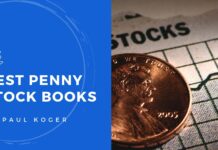





![Etoro Review – My Honest Opinion [+TUTORIALS]](https://foxytrades.com/wp-content/uploads/2018/03/Etoro-Review-100x70.jpg)

Great article. Just one thing: Etienne Crete is a fake. I’m from the same city as he is and knows a guy who knows him personally. He likes to portray himself as a profitable trader but he’s not. He doesn’t trade profitably, let alone with real money, but sells courses and gives people advice in forex trading. He lives in his parents’ basement for Christ’ sake. That’s what’s dangerous with the internet these days……………………….. complete morons passing as pro-traders.
Anna, thanks for the tip! Do you have anything to back this claim? I would not like to feature someone that is not who they say they are.
I think she’s right. Bought his course a last year. Nothing in there. Just recycled stuff that you’d get freely online. Had I gifted that money to a bum that would have been money better spent 🙁
Thank you for the input!
You should really ask the traders you feature for a current record of their brokerage statements and ask if you can publish them.
Successful traders don’t need to teach – so why are they featured here with links to their websites? If they are truly successful traders, they wouldn’t need to advertise because they would be ‘known’ in the industry and people would be knocking down their door.
Reality is that most of the so called gurus are not gurus at all. They are cashing in on the highly emotional leverage they have over others through which they amass richess for themselves – they is their true game. It is possible for them because people want to believe they can make it and the ‘promise’ of unlimited wealth from trading makes people vulnerable to snake oil salesman!
No offence intended.
Hi Chris,
I get your point and this is something that I’ve given much thought to as well.
However if you consider the risk/reward of trading vs the risk/reward of teaching, you might be attempted to try and provide some teaching on the side.
If your methods are valid, you will likely gain traction, otherwise it’s hard to sell a system that doesn’t work for a prolonged period of time.